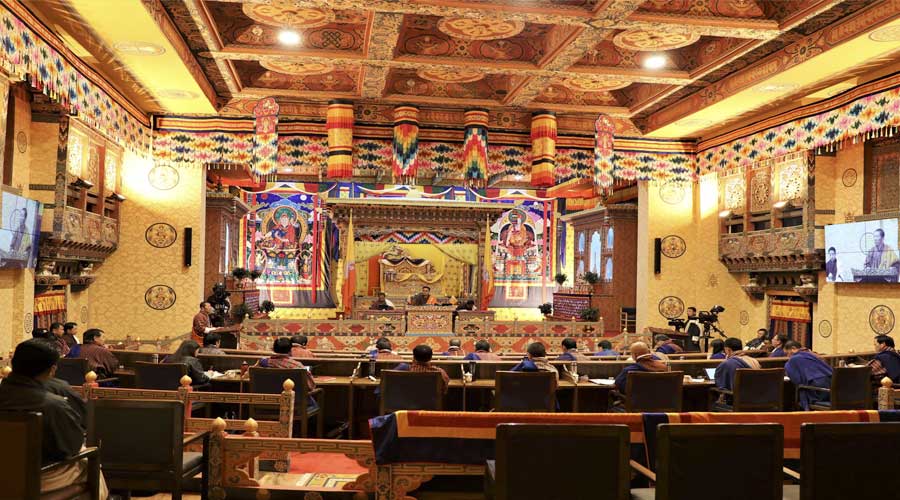
The Prime Minister faced a slew of questions over the “Civil Service Reform Bill” from the members of the National Council yesterday. The Bill was passed in the National Assembly last week. The much talked about Bill is being tabled as an Urgent Bill for deliberation this parliament session.
Introducing the bill, Lyonchhen said it is being tabled as an Urgent Bill for discussion in this current sitting due to the ongoing reforms in the civil service.
Then queries from the National Council members ensued. They asked the Prime Minister about how the Bill will help the government to have a right-sized and efficient civil service.
Some members also raised their concerns, citing that the Bill lacks a specific provision to bring about systematic change, fix accountability and foster ownership among the civil servants to shoulder responsibilities with diligence.
“As per studies, one of the best ways to produce efficient civil servants is to fix accountability and promote a transparent system of governance. But at the moment, relevant laws and acts lack this. So I was expecting at least a clause in this Bill. But the Bill has nothing new except some change of ministries’ names and some guidelines,” underlined the National Council Member from Gasa, MP Dorji Khandu.
The National Council Member from Trashigang, MP Lhatu, also asked a similar question to the Prime Minister.
“We would be grateful if the Honorable Prime Minister could explain how the Bill ensures the systematic change in civil service. A civil servant may be capable and highly qualified. But if there are some lapses in the system lapses, he or she cannot contribute to the nation building. So I feel it is necessary for the RCSC to address the issue.”
Furthermore, council members sought justification from the Prime Minister on creating new ministries and merging government agencies.
“The ongoing civil service reforms and transformations have dissolved two ministries and came up with a new ministry. Now we have nine ministries in total. The names of previous ministries are given after in-depth studies. But what I feel is some ministries are overburdened with the reshuffle. So I am concerned about the efficiency in rendering services to the public,” pointed out MP Tashi Samdrup, the National Council Member from Trongsa.
The National Council Member from Monggar seconds his viewpoints.
“Will merging of independent government commissions or agencies with ministries not affect public service delivery? This is because some agencies are mandated for service delivery and while some are regulatory bodies. In such cases, conflict of interest will arise while doing their duties,” said MP Sonam Pelzom.
Responding to all the queries from the members, the Prime Minister said the “Civil Service Reform Bill” is presently a skeleton framework and it has scope for amendments as and when needed.
“Yes, the Bill doesn’t have a separate provision to fix accountability for civil servants as shared by some honourable members. This is because the Bill is just the skeleton framework of restructuring agencies and necessary amendments will be done as and when required,” pointed out the Prime Minister.
Furthermore, Lyonchhen said “The ministries are agents of executing any developmental activity in the country. Therefore, the ministries are mandated to fix accountability for any lapses. This is the main reason why independent government and autonomous agencies are merged with the ministries.”
However, the House decided its Legislative Committee will review the Bill and present it for further deliberation in the coming days.
Pema Tshewang
Edited by Pema Lhaden








